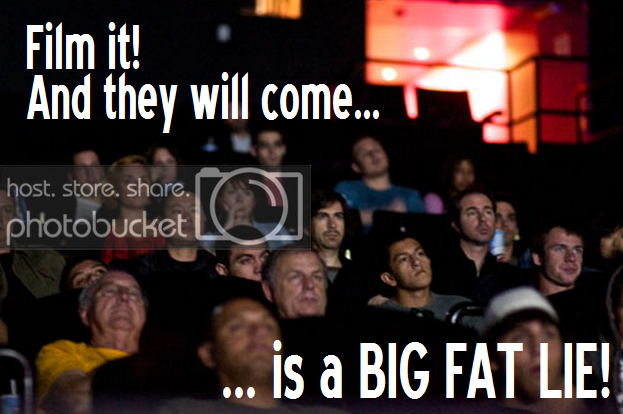I agree-- but "what the film draws out of the audience" must be accomplished by the film, which keeps the process mostly filmmaker-centric, doesn't it?
Which reminds me of a 2012 quote from that marketing guy, Seth Godin:
"Apple had just one customer. He passed away last year." <meaning Steve Jobs>
No, I don't think it keeps it filmmaker-centric, at least not at the level it's traditionally been. I'm thinking more along the lines of another marketing guy - Hugh Mcleod - and his concept of 'social objects':
http://gapingvoid.com/so/
The core of this concept is that the actual object isn't really what's important to the audience - what's important to the audience is the conversations and other interactions with their friends that the object brings about. From a marketing perspective the common mistake is to assume that you need to make the product itself the most important thing to people.
Sticking with apple as an example, take a look at one of their recent ads:
https://www.youtube.com/watch?v=NoVW62mwSQQ
They're selling a camera, just like a lot of other companies, but they don't do it like anyone else. How many megapixels is it? What's the zoom? What does it do better than any of it's competitors? They don't say - in fact they almost don't say anything (although I honestly think they still said too much).
What they do is show people taking pictures of the things that are important or relevant to them. People delighting in the act of taking or sharing a picture. Capturing a moment in time, a memory. It's not about the camera they're using, it's the experience they all share. It could be any camera, or many cameras, but it's not - it happens to be an iphone, over and over and everywhere all the time.
Now compare it to the recent nokia ads promoting their camera:
https://www.youtube.com/watch?v=slf3GgxqusI
It's funny, for sure, but it's a contrived scenario designed to present a problem that is solved by the specific feature (41 megapixels!!!!!) in their phone, and solved much better than by the competition. That's a pretty traditional marketing approach, but it also has to pretend that what's important about the pictures you take at your kid's school play is the picture itself, rather than what it represents.
So I think the trick is to start thinking about how films become social objects. Many are to some degree, but some are far more than others. The 'cult' film is pretty much the definition of a social object - something like Rocky Horror perhaps being the pinnacle of that, where the film itself is primarily a catalyst for social interaction. Or anything that inspires widespread cosplay could be another example. So what is it that makes a film work that way?
Or maybe we need to start with something simpler - what is it that makes someone want to talk about or share a film with one of their friends?








